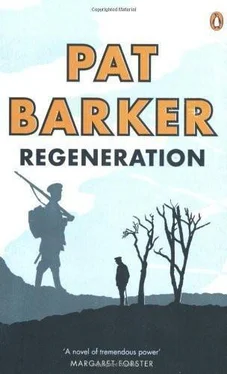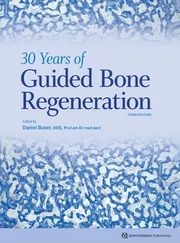No raid tonight. It was ironic that on this one quiet night he should have woken himself up with a nightmare. As with all nightmares, the horror lingered. He was still inclined to accuse himself. That, he thought — self-reproach — had been the dominant affect. At first he was inclined to connect it with the quasi-sexual imagery of the dream, for the dream action had been both an accurate representation of Yealland’s treatment and uncomfortably like an oral rape. He didn’t feel, however, that the underlying conflict had been sexual.
The manifest content came from his visit to Queen Square, and was present with relatively little transformation. There was no doubt that the visit had been rife with opportunities for conflict. From the beginning he’d felt a tension between, on the one hand, his sympathy for the patients, his doubts about the quality of the treatment they were receiving, and on the other, the social and professional demands on him to be reasonably polite. As the day had gone on, this conflict had certainly deepened. Over lunch Yealland had told him about an officer patient of his who stammered badly, and whom Yealland had cured in — as usual — one session. Rivers — to his own amusement and exasperation — had responded to the story by beginning to stammer rather badly. And whenever he’d hesitated over a word, he’d sensed Yealland calculating the voltage. All nonsense of course. He’d been more amused by the situation than anything else, but nevertheless the worsening of his stammer did point to an underlying conflict that might well find expression in a dream.
The man in the corridor with the spinal contracture seemed to represent Sassoon, since he’d quoted the Declaration, though it was difficult to imagine anybody more physically unlike Sassoon than that deformed, pseudo-dwarf. And the expression of antagonism — that certainly didn’t correspond with anything in the real Sassoon’s attitude towards him. But then there was no reason why it should. The dream action is the creation of the dreamer. The mood of this dream, a mood so powerful he could still not shake it off, was one of the most painful self-accusation. The man’s expression need reflect no more than his feeling that Sassoon, perhaps, had grounds for antagonism.
He hadn’t been able to see the face of the second patient, and had no clear sense of who it was. The obvious candidate was Callan, since it was Callan he’d watched being treated. And Callan had been working with horses when he became mute, which might account for the bit. And yet he was fairly certain the dream patient had not been Callan.
On the wards he’d been struck by a slight facial resemblance between Callan and Prior, who had also been mute when he arrived at Craiglockhart. He remembered an incident shortly after Prior’s arrival when he’d dragged a teaspoon across the back of his throat, hoping that the choking reflex would trigger the return of speech. This did sometimes happen. He’d seen more than one patient recover his voice in that way. But he’d tried it while in a state of acute irritation with Prior, and the choking had occasioned a momentary spasm of satisfaction. Very slight, but enough to make him feel, in retrospect, discontented with his own behaviour. Mute patients did arouse exasperation, particularly, as with both Prior and Callan, when their satisfaction with their condition was hardly at all disguised. Perhaps the dream patient was a composite figure, part Callan, part Prior, the combination suggested by his application of a teaspoon to Prior’s throat and Yealland’s application of an electrode to Callan’s.
But there was no comparison in the amount of pain inflicted. On the face of it he seemed to be congratulating himself on dealing with patients more humanely than Yealland, but then why the mood of self-accusation? In the dream he stood in Yealland’s place. The dream seemed to be saying, in dream language, don’t flatter yourself. There is no distinction.
A horse’s bit. Not an electrode, not a teaspoon. A bit. An instrument of control. Obviously he and Yealland were both in the business of controlling people. Each of them fitted young men back into the role of warrior, a role they had — however unconsciously — rejected. He’d found himself wondering once or twice recently what possible meaning the restoration of mental health could have in relation to his work. Normally a cure implies that the patient will no longer engage in behaviour that is clearly self-destructive. But in present circumstances, recovery meant the resumption of activities that were not merely self-destructive but positively suicidal. But then in a war nobody is a free agent. He and Yealland were both locked in , every bit as much as their patients were.
Bits. The scold’s bridle used to silence recalcitrant women in the Middle Ages. More recently, on American slaves. And yet on the ward, listening to the list of Callan’s battles, he’d felt that nothing Callan could say could have been more powerful than his silence. Later, in the electrical room, as Callan began slowly to repeat the alphabet, walking up and down with Yealland, in and out of the circle of light, Rivers had felt that he was witnessing the silencing of a human being. Indeed, Yealland had come very close to saying just that. ‘You must speak, but I shall not listen to anything you have to say.’
Silencing, then. The task of silencing somebody, with himself in Yealland’s place and an unidentified patient in the chair. It was possible to escape still, to pretend the dream accusation was general. Just as Yealland silenced the unconscious protest of his patients by removing the paralysis, the deafness, the blindness, the muteness that stood between them and the war, so, in an infinitely more gentle way, he silenced his patients; for the stammerings, the nightmares, the tremors, the memory lapses, of officers were just as much unwitting protest as the grosser maladies of the men.
But he didn’t believe in the general accusation. He didn’t believe this was what the dream was saying. Dreams were detailed, concrete, specific: the voice of the protopathic heard at last, as one by one the higher centres of the brain closed down. And he knew who the patient in the chair was. Not Callan, not Prior. Only one man was being silenced in the way the dream indicated. He told himself that the accusation was unjust. It was Sassoon’s decision to abandon the protest, not his. But that didn’t work. He knew the extent of his own influence.
He went on sitting by the window as dawn grew over the Heath, and felt that he was having to appeal against conviction in a courtroom where he himself had been both judge and jury.
Head’s room was very quiet. The tall windows that overlooked the square were shrouded in white net. Outside was a day of moving clouds and fitful sunlight, and whenever the sun shone, the naked branches of plane trees patterned the floor. So Head’s patients must sit, hour after hour, with those bright, rather prominent eyes fixed on them, while elsewhere in the house doors banged and a telephone started to ring. But there the normality of the ‘consultation’ ended, for Head would never, not even under the most extreme provocation, have told a patient that he was talking a load of self-indulgent rubbish. Rivers opened his mouth to protest and was waved into silence.
‘All right,’ Head swept on. ‘He’s muddle-headed, immature, liable to fits of enthusiasm, inconsistent. All of that. But… And he virtually had no father and he’s put you in his father’s place. But , he’s also’ — ticking off on his fingers — ‘brave, capable of resisting any amount of pressure — the mere fact he protested at all in the present climate tells us that — and above all — no, let me finish — he has integrity. Everything you’ve told me about him suggests he was always going to go back, as soon as he knew the protest was useless, simply because there’s no way he can honourably stay in Craiglockhart taking up a bed he doesn’t need.’
Читать дальше












